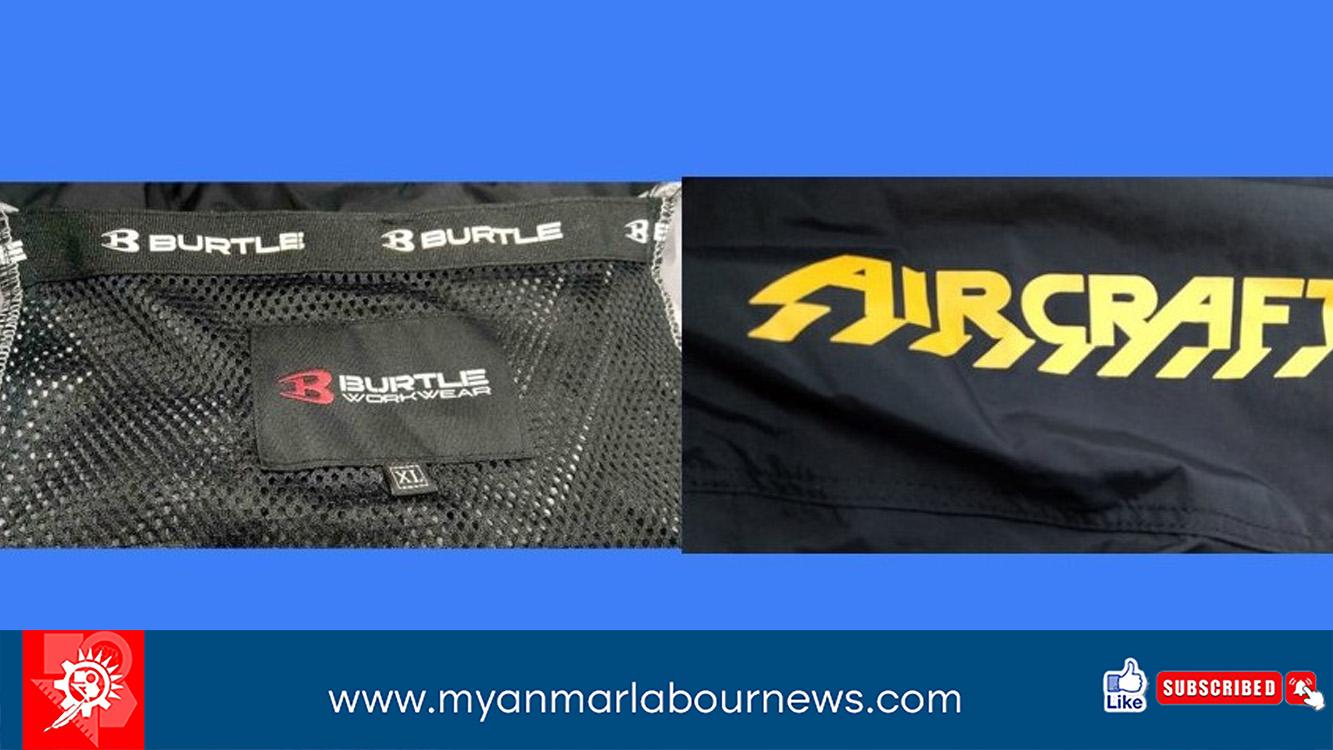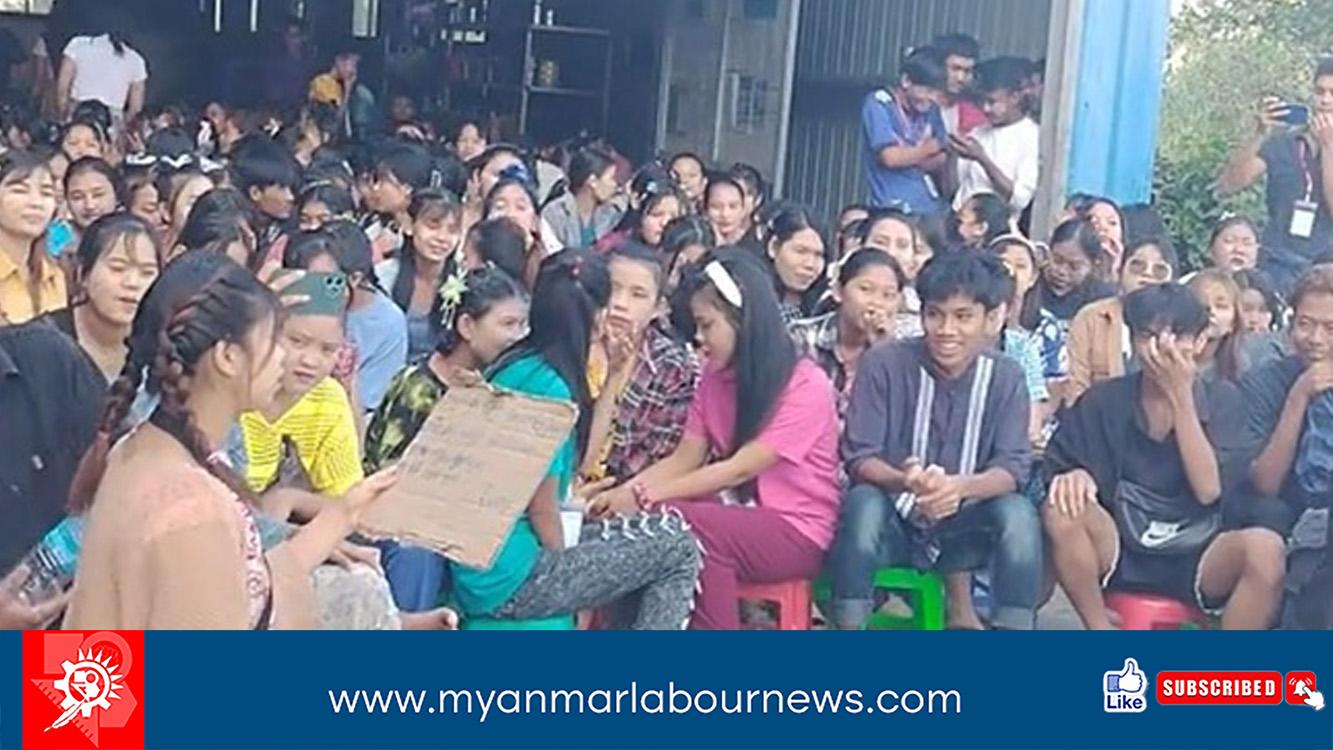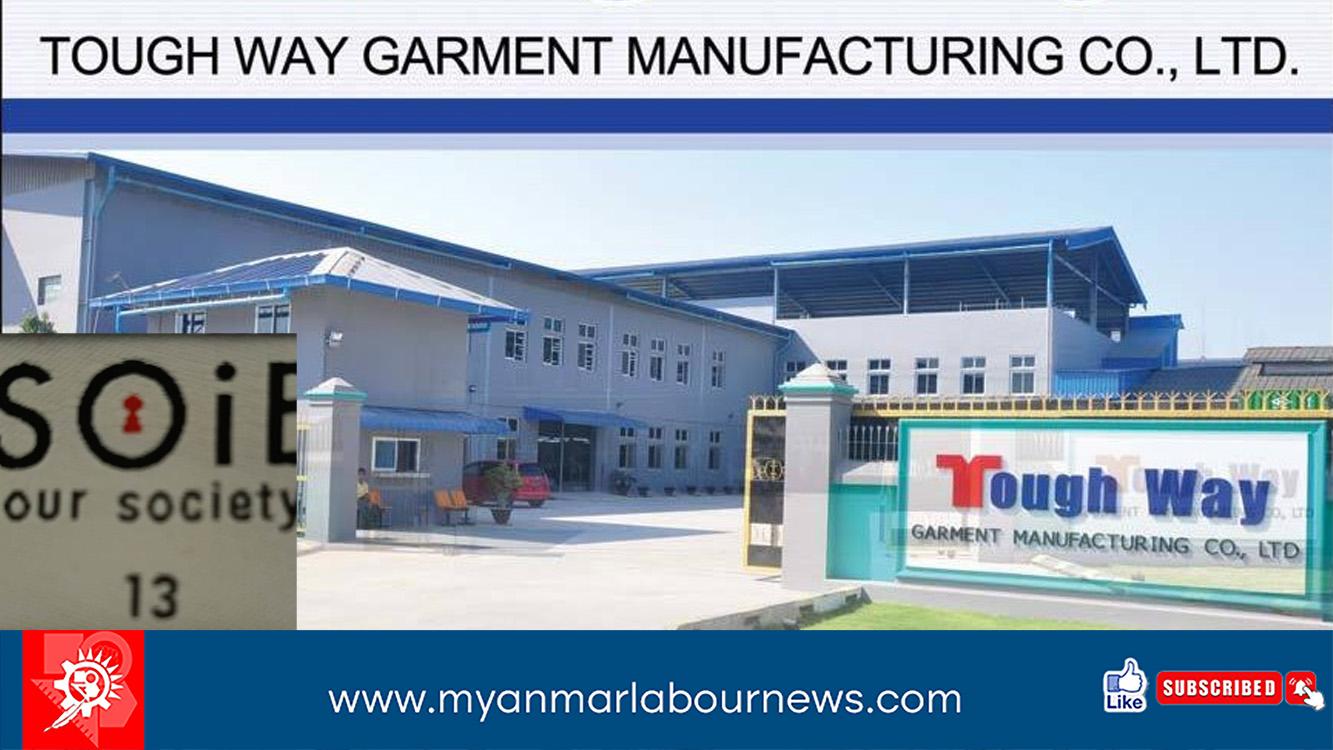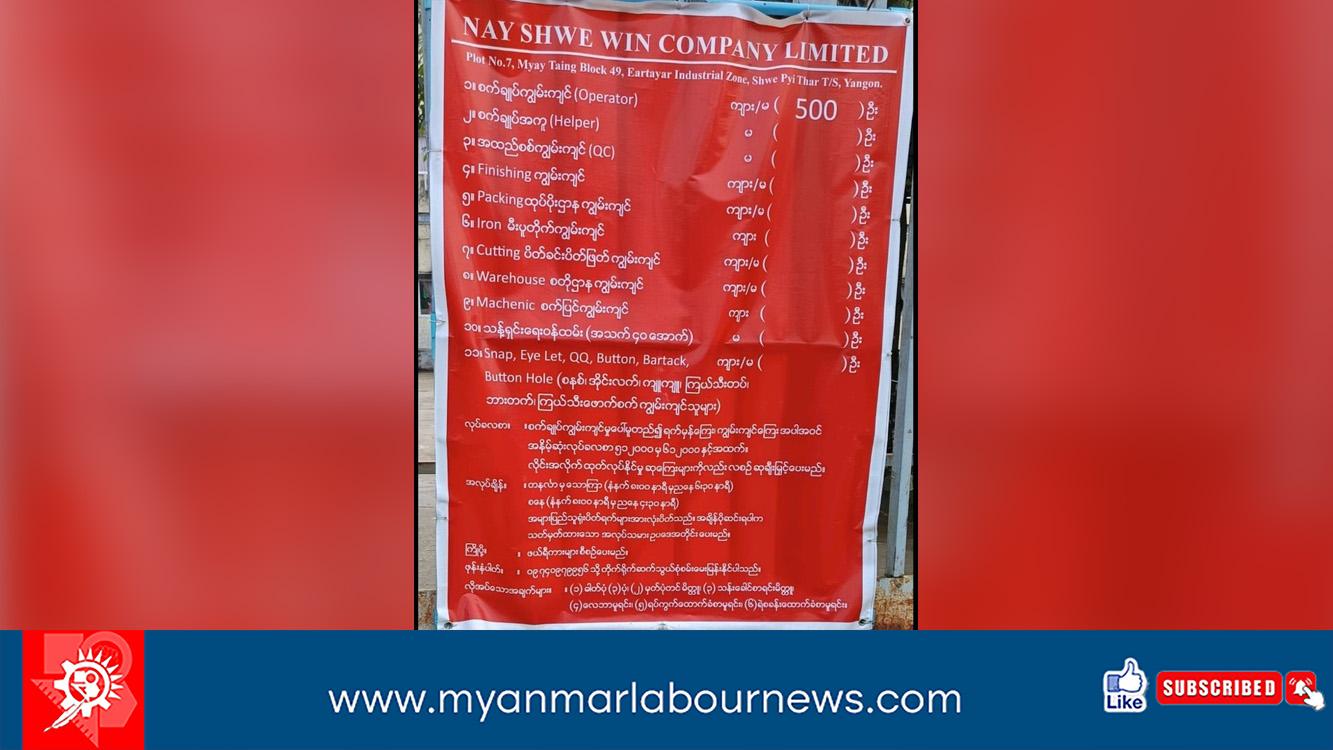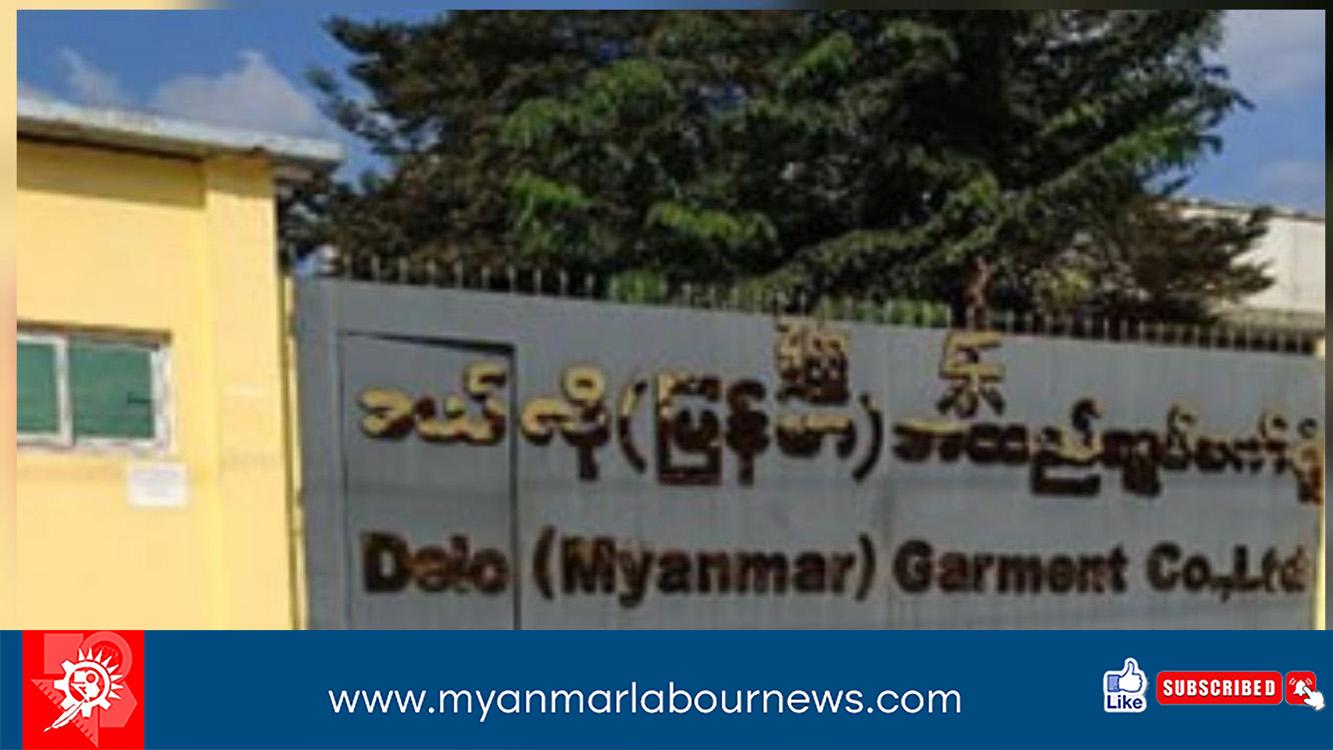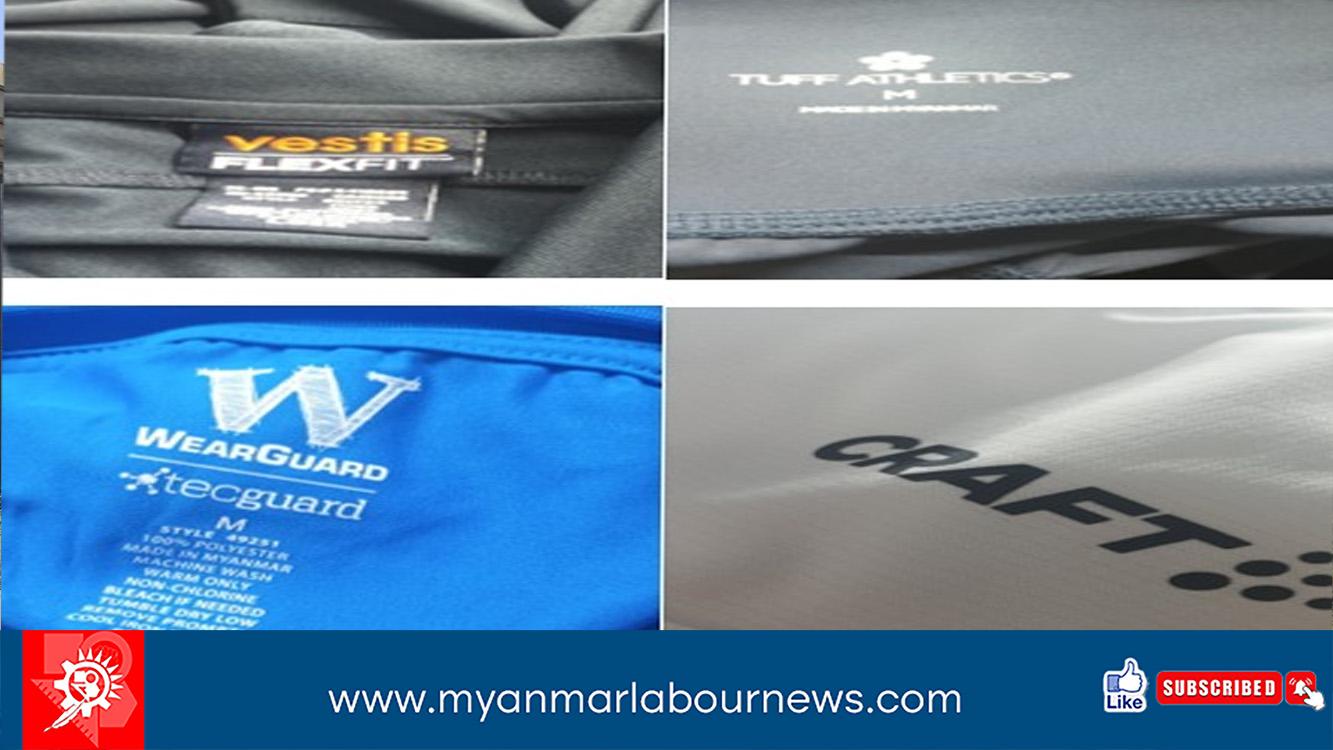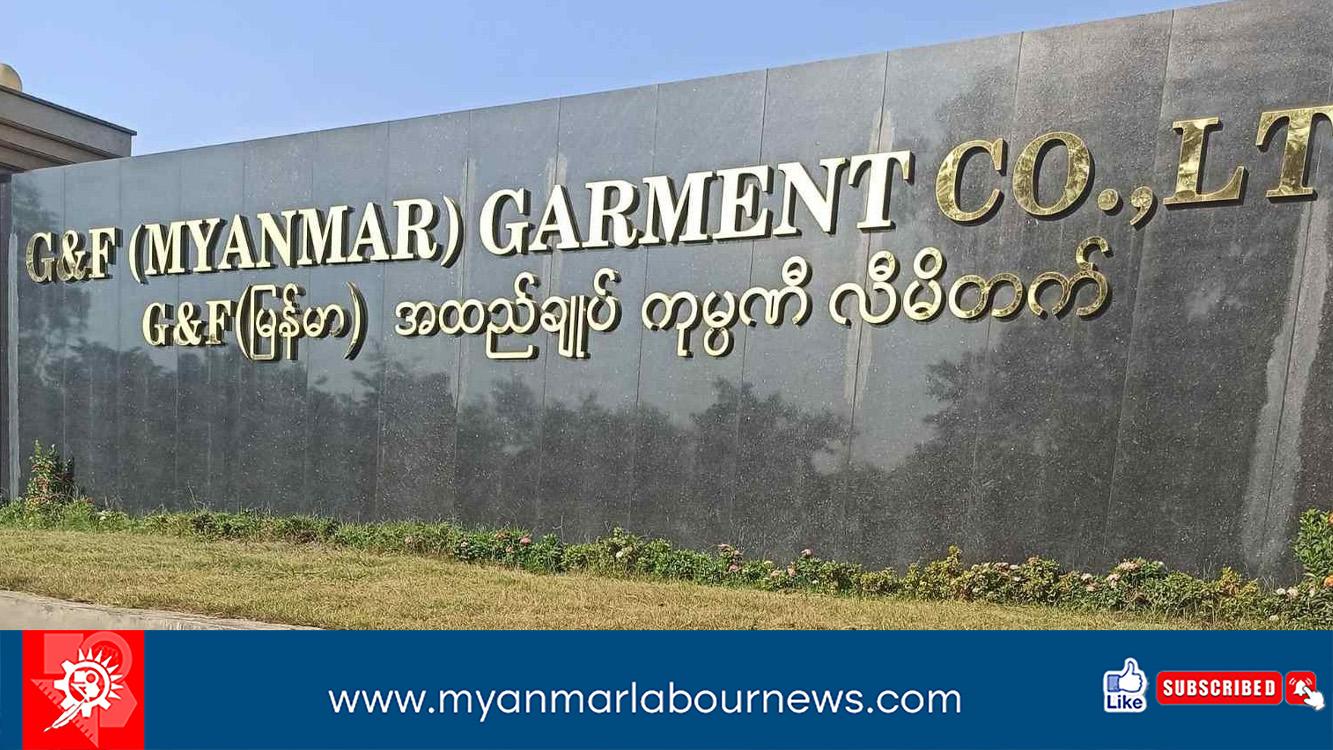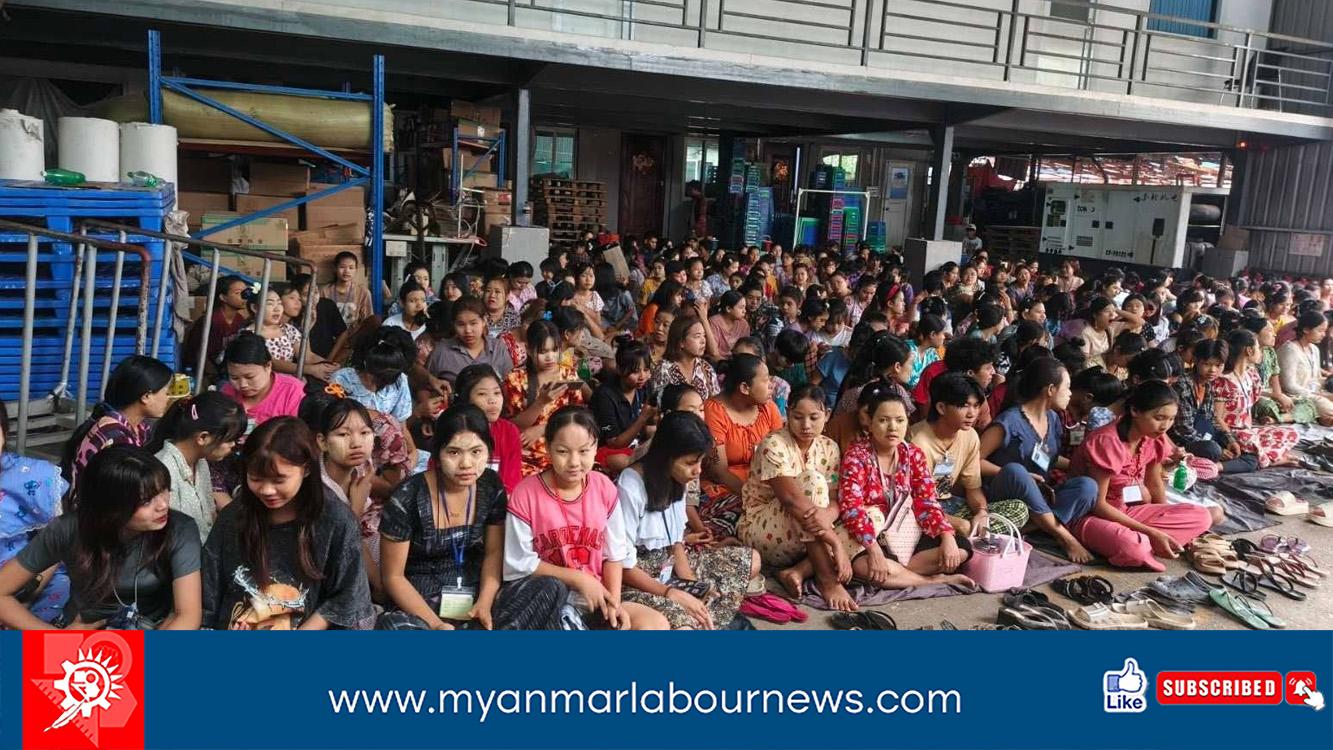By Min Ni Kyaw - May 16, 2025
Workers at Dishang Fashion Myanmar garment factory say they only receive one day off per month due to being required to work even on Sundays. The factory does not provide transportation for workers on Sundays when work is required, they added.
“We have to work at least three Sundays per month. They don’t provide ferry buses whenever we have to work on a rest day but only give 300 kyats for ferry fees. Supervisors have requested transportation, but the office staff named Yee Yee said, ‘Their can’t deliver and want rights. You’re already supervisors — can’t you control the workers?’ That’s what the leaders told us,” workers said.
According to workers, Yee Yee is an interpreter in the factory director’s office and also acts as a manager. They added that work permission notices for Sunday shifts are not displayed on the factory’s notice board.
“The factory always claims to be operating according to the law. But we have to sign in twice when entering — one fake and one real. The factory has never explained why,” workers stated.
Working hours are from 7:30 AM to 4:30 PM, and workers end up working for 8.5 hours daily since the lunch break is only 30 minutes. Although a 30-minute break is officially provided during OT until 7:30 PM, workers say they’re only allowed 15 minutes to rest and are required to work the remaining 15 minutes with pay.
Additionally, workers said the factory forces them to falsify attendance records in relation to OT and daily wages.
“One day, daily workers had to work until 8:30 PM on Saturday, but they were asked to sign that they only worked until 8 PM. When brand representatives visited and workers were released early with only 5,000 kyats, they were asked to sign a form saying they were paid 10,000. The factory asks workers to cooperate by signing false records when brands visit. Now they’ve stopped hiring daily workers and even suspended interviews,” they said.
Workers say they suffer from heat-related health issues due to inadequate drinking water and discriminatory treatment during hot seasons.
“Some workers have fainted on the lines with the extreme heat. The factory doesn’t provide enough electrolyte drinks for around 1,000 workers. There are no fans in the work areas, especially where ironing is done. The water coolers aren’t nearby and the water quality isn’t good. It’s too hot, and working in these conditions is very difficult,” workers said.
When workers on Lines 1 to 10 faint, a supervisor refuses to issue gate passes and tells workers, “Resign if you can’t work. Don’t come if you can’t handle it.” Workers added that the same supervisor runs a small shop inside the factory, giving preferential treatment to those who buy and discriminating against those who don’t. Water shortages occur two or three times a week, and there’s no emergency provision.
“We have to eat in the canteen where water is leaking everywhere when it rains — it’s very uncomfortable,” said one worker.
Surveillance on workers has become frequent within the factory, with dismissals based on alleged EC contract violations. Pregnant workers are not exempt from being dismissed.
“There have been intentional dismissals. The HR manager instructs the WCC to monitor workers. The WCC members take pictures of workers and send them to the office. Then, even pregnant workers are pressured and fired for violating EC contract rules. Just recently, a COC staff member who was mediating between the factory and workers was fired. We saw that notice on the factory bulletin board,” one worker said.
The dismissal of the COC staff member was linked to allegations that internal factory issues were shared externally and that misinformation was being spread claiming only 8,000 Bestseller garments were being manufactured.
Dishang Fashion Myanmar garment factory is Chinese national-owned and currently employs around 900 workers producing apparel for the Bestseller brand.


